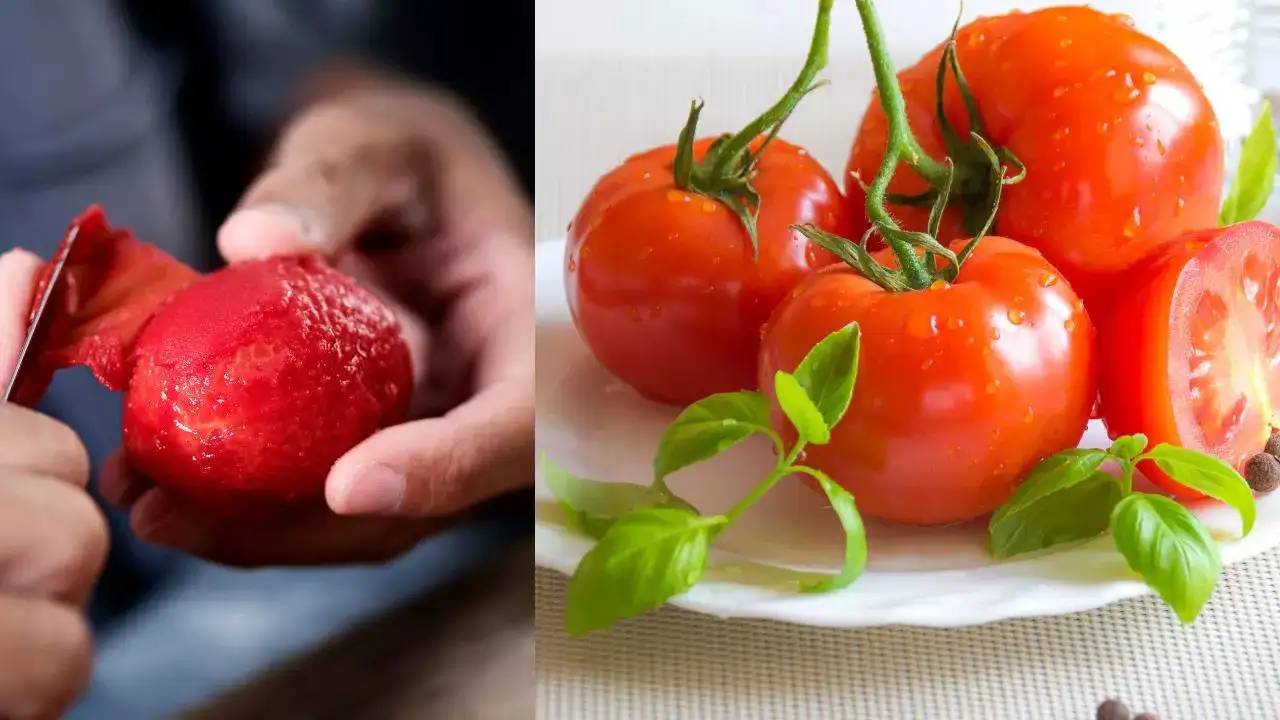Copyright indiatimes

Tomatoes are among the world’s most widely used fruits, featuring in countless recipes, from fresh salads and sauces to juices and soups. But while most of us enjoy the juicy flesh, the peel is often discarded without much thought. Recent scientific research suggests that this colourful outer layer may be far more valuable than we realise.A new study highlights the potential use of tomato peel as a rich source of lycopene and other bioactive compounds. These findings not only showcase the nutritional promise of tomato peels but also align with global efforts to reduce food waste and promote sustainable nutrition.The nutrient-rich tomato peel: A natural source of lycopene and protective compoundsTomato peel makes up a small percentage of the fruit’s total weight, yet it contains a concentrated amount of key nutrients and antioxidants, particularly lycopene, phenolic compounds, and flavonoids. These bioactive substances have been linked to numerous health benefits, including:Protection against oxidative stressSupport for heart and skin healthAnti-inflammatory and potential anti-cancer effectsUnlike refined tomato products, which may lose nutrients during processing, the peel retains a high density of natural compounds, making it an untapped nutritional asset.Why lycopene matters: The antioxidant that protects your heart, skin, and cellsLycopene is a natural carotenoid known for its vibrant red colour and antioxidant power. It helps neutralise free radicals, unstable molecules that contribute to cellular ageing and chronic disease.Studies have linked higher lycopene intake with:Reduced risk of cardiovascular diseaseLower oxidative stress levelsImproved skin protection from UV damagePotential anticancer propertiesInterestingly, lycopene in tomato peel is often more bioavailable than that found in other parts of the fruit, particularly when tomatoes are cooked with healthy fats such as olive oil, which enhances absorption.According to a study published in the British Journal of Nutrition, lycopene consumption has been associated with improved vascular function and reduced inflammatory markers.Health benefits of tomato peel1. Antioxidant and anti-inflammatory effectsTomato peel extracts contain natural antioxidants that can reduce oxidative damage caused by stress, pollution, and a poor diet. These compounds also help calm inflammation, potentially supporting heart and metabolic health.2. Cardiovascular supportLycopene contributes to better heart health by protecting lipids from oxidation and supporting healthy cholesterol levels. Diets rich in tomato-based foods have been linked to lower risks of hypertension and coronary heart disease.3. Skin health and UV protectionRegular consumption of lycopene-rich foods, including tomato peel, may help improve skin elasticity and protect against sun-induced damage.4. Gut and immune functionThe fibre in tomato peel aids digestion and may help maintain gut microbial balance, which is essential for a healthy immune system.Sustainability and food waste reductionBeyond personal health, incorporating tomato peels into your diet supports environmental sustainability. The global food industry generates tonnes of tomato waste annually from processing and peeling.Using these peels, whether in powders, purees, or sauces, can reduce waste while adding nutritional and economic value. Researchers are also exploring how tomato peel extracts could be used in functional foods, nutraceuticals, and even natural packaging materials due to their antioxidant stability.How to add tomato peel to your dietHere are simple, practical ways to include tomato peel in everyday meals:Keep the peel on when making sauces, soups, or stews; cooking enhances lycopene absorption.Blend whole tomatoes into smoothies or purees for added fibre and antioxidants.Dehydrate tomato peels and grind them into a fine powder to sprinkle over pasta, salads, or eggs.Roast tomatoes with skin for a flavourful, nutrient-rich side dish.These small adjustments can make a meaningful difference in nutrient intake and waste reduction.Disclaimer: This article is for informational purposes only and should not be considered medical advice. Please consult a healthcare professional before making any changes to your diet, medication, or lifestyle.



